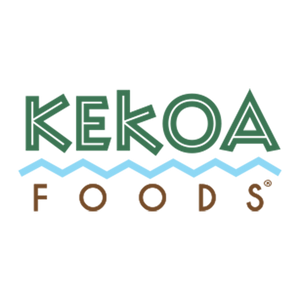
The early years of your baby's life are a period of rapid brain development and growth. Have you ever gone down a rabbit hole of photos on your camera roll? You can see major differences in your child from a baby to the toddler years.
Their rapid physical and emotional development can be astonishing! It’s almost as if you blink and your tiny baby is speaking full sentences.
One factor that plays a crucial role in nurturing their quickly developing cognitive and neurological functions is healthy fats. Let’s explore the importance of healthy fats for baby nutrition, their contribution to brain development, and how to choose the right sources of these essential nutrients.
Understanding Healthy Fats for Baby Nutrition
Healthy fats, also known as unsaturated fats, are essential for your baby's overall growth and well-being. They provide a concentrated source of energy and are fundamental for building cell membranes, supporting brain development, and absorbing fat-soluble vitamins (1).
Omega-3 Fatty Acids
Building Blocks for Brain Cells: Omega-3 fatty acids, specifically DHA (docosahexaenoic acid), are crucial for your baby's brain development. DHA is a primary structural component of brain tissue and plays a significant role in neuronal function and communication. Introducing solids to baby presents an opportunity to include DHA-rich foods like fatty fish and DHA-fortified options (2).
Benefits of Healthy Fats for Brain Development
Healthy fats support the growth of nerve cells and facilitate connections between brain cells. They aid in the formation of synapses, which are vital for learning, memory, and cognitive functions. Adequate intake of healthy fats during the early years can contribute to your baby's cognitive development and intelligence (3).
Choosing the Right Sources of Healthy Fats
When it comes to incorporating healthy fats into your baby's diet, consider these options:
Avocado oil: Smooth and silky, avocado oil is a great source of monounsaturated fats. It has a high smoke point, making it a good choice for high heat cooking methods like sautéing, and can be found in our
Fatty Fish: Salmon, trout, and sardines are rich in omega-3 fatty acids. Include them in your baby's diet, prepared as finely flaked to ensure proper chewing.
Olive Oil : Olive oil is primarily composed of monounsaturated fats, which are considered heart-healthy fats. Kekoa Foods’ Squash & Kale with Turmeric baby food puree contains olive oil for a dose of healthy fats to support your little one's growth and development.
Chia Seeds: A versatile source of omega-3s, chia seeds can be soaked and added to smoothies for added texture and nutrition.
Balancing Fat Intake
While healthy fats are essential, it's crucial to strike a balance. Too much fat can displace other important nutrients in your baby's diet. Aim for a balanced approach, incorporating a variety of nutrient-rich foods.
Professional Guidance and Portion Control
Consult your pediatrician or a registered dietitian for guidance on the appropriate amount of healthy fats for your baby. They can provide personalized recommendations based on your baby's age, developmental stage, and dietary needs.
Healthy fats are your baby's brain's best friend. By incorporating sources like fatty fish, avocado oil, and chia seeds into their diet, you're providing the building blocks for cognitive development and overall health.
As you embark on the journey of introducing solids to baby, remember that a balanced approach to nutrition, guided by healthcare professionals, sets the stage for a bright and promising future for your little one.
References:
National Institutes of Health. (2021). Fats. https://www.ncbi.nlm.nih.gov/books/NBK218759/
National Institutes of Health. (2021). Omega-3 Fatty Acids. https://ods.od.nih.gov/factsheets/Omega3FattyAcids-HealthProfessional/
Lauritzen, L., Brambilla, P., Mazzocchi, A., Harsløf, L. B. S., Ciappolino, V., Agostoni, C. (2016). DHA Effects in Brain Development and Function. Nutrients, 8(1), 6. https://doi.org/10.3390/nu8010006
